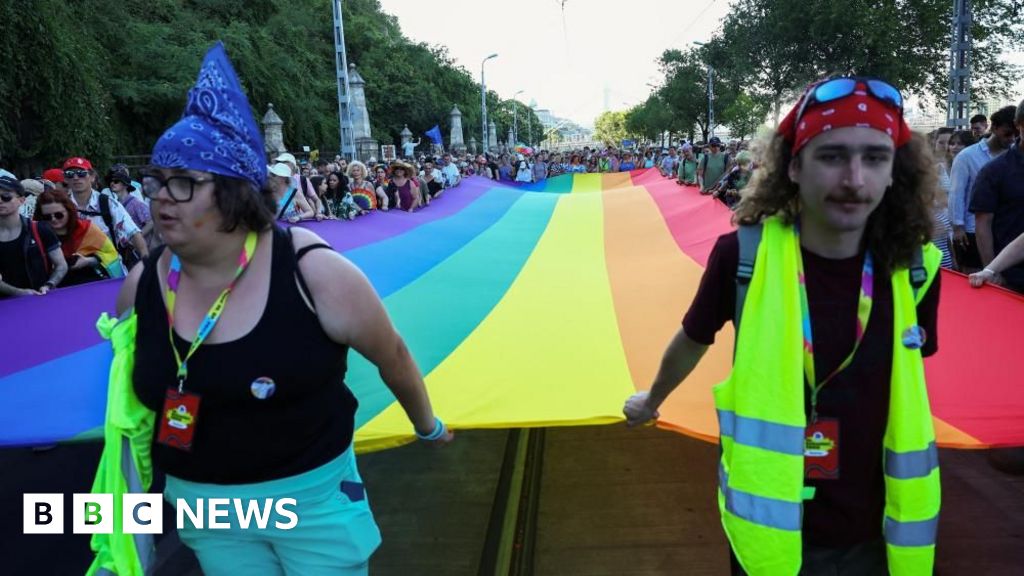BUDAPEST – In a powerful display of unity and defiance, thousands gathered for Budapest Pride, sending a clear message to Prime Minister Viktor Orban.
Immediate Impact
The vibrant celebration took to the streets of Budapest on Saturday, transforming the city into a colorful canvas of solidarity and resistance. Despite the sweltering summer heat, the festivities occupied the Elizabeth Bridge and the bustling riverbanks of the Danube, drawing between 100,000 to 200,000 participants. The march, which traditionally takes just 20 minutes to traverse from Pest to Buda, stretched into a lively three-hour procession.
Key Details Emerge
Many attendees cited Orban’s controversial policies as a catalyst for their participation. Last year, the event attracted only 35,000 people. This surge in attendance underscores a collective response to the Prime Minister’s recent ban on LGBTQ+ gatherings. Banners mocking Orban were a common sight, with slogans such as “In my history class, I learnt enough, to recognize a dictatorship” and “I’m so bored of Fascism” prominently displayed.
“We don’t exactly look as though we were banned!” — Budapest Mayor Gergely Karacsony
Industry Response
Budapest Mayor Gergely Karacsony addressed the crowd in front of the Budapest Technical University, highlighting the city’s defiance. “In fact, we look like we’re peacefully and freely performing a big, fat show to a puffed-up and hateful power. The message is clear: they have no power over us!” he declared.
By the Numbers
- 100,000 – 200,000 participants estimated
- 35,000 attendees last year
- 3 hours duration of the march
What Comes Next
Finnish MEP Li Andersson, among the attendees, criticized Orban’s use of “family values” as a pretext for the ban. “It’s important to emphasize that the reason why we are here is not only Pride – this is about the fundamental rights of all of us,” she stated.
Background Context
The ban stems from a law passed by Orban’s Fidesz party, linking homosexuality with paedophilia under a 2021 Child Protection law. This legislation prohibits the portrayal or promotion of homosexuality where children might be present. Despite this, the police maintained a restrained presence, observing the event from a distance.
Expert Analysis
According to political analysts, the march represents a significant challenge to Orban’s authority. The event’s success could embolden other cities to defy similar bans, potentially altering the political landscape in Hungary.
Regional Implications
While Budapest celebrated, Orban attended a graduation ceremony for new police and customs officers. His speech emphasized the need for order, a sentiment echoed by Fidesz officials who posted family photos online, attempting to reclaim the concept of “pride.”
Timeline of Events
- 2021: Child Protection law passed, equating homosexuality with paedophilia
- 2023: Budapest Pride defies ban, attracting record numbers
- Future: Potential ripple effects on Hungarian and European politics
The success of Budapest Pride signals a growing resistance to Orban’s policies, with implications that may resonate beyond Hungary’s borders. As the city moves forward, the event’s legacy could inspire further advocacy for human rights and equality.
